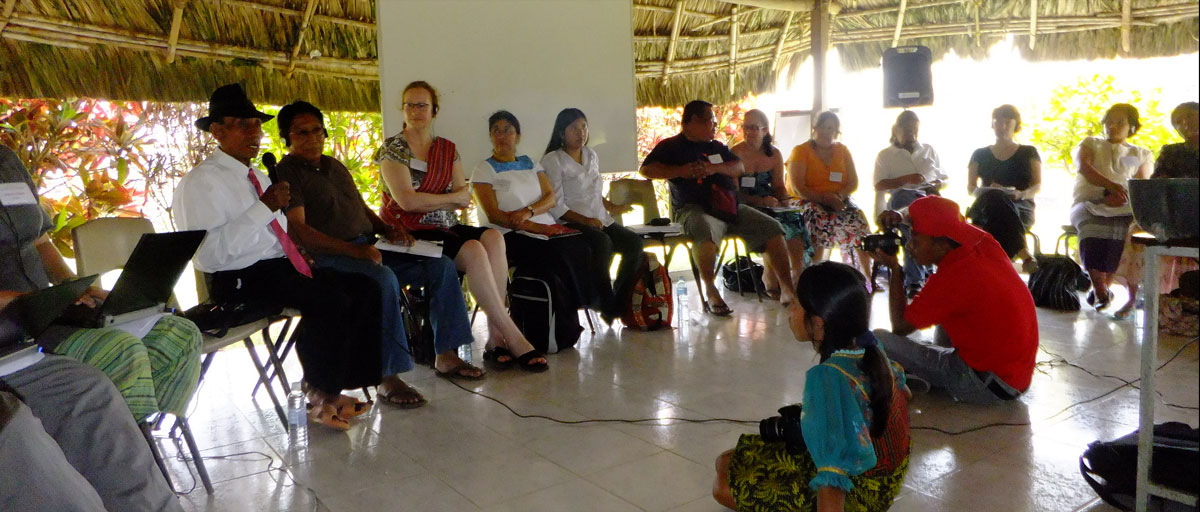Standfirst
Bridging citizen science and Indigenous knowledge for a healthier planet

A new study in Bioscience shows that under the right conditions, citizen science partnerships with Indigenous and local peoples can make significant contributions to meeting sustainability challenges. Photo: J. de la Malla
Continuous, reflexive dialogue with Indigenous knowledge holders crucial for stewardship of biodiversity and ecosystems
- In many areas in the world, ecosystems are governed by Indigenous peoples and local communities
- Citizen science partnerships with Indigenous and local peoples can make significant contributions to meeting local and global sustainability challenges
- Partnerships needs to be based in recognition of the integrity of indigenous knowledge and governance systems
A BETTER CITIZEN SCIENCE: Although science is often seen as producing the most rigorous, accurate, and useful evidence for informing decision-making, in vast areas around the world, ecosystems are governed primarily by Indigenous peoples and local communities.
And when it comes to environmental decision making, stakeholders from such communities are frequently excluded from or do not feel adequately represented in scientific endeavors.
How can these communities be included, and their vast and crucial expertise harnessed for the protection and regeneration of our planet?
Confronting historic inequalities
A new study in Bioscience shows that under the right conditions, citizen science partnerships with Indigenous and local peoples can make significant contributions to meeting sustainability challenges both locally and around the globe.
The research was led by Maria Tengö of Stockholm Resilience Centre and SwedBio, together with colleagues from Charles Darwin University, the Nordic Foundation for Development and Ecology (NORDECO), and the Helsinki Institute of Sustainability Science, University of Helsinki.
It suggests that to benefit from the contributions, citizen science must address historic inequalities that dictate whose knowledge is valued by and represented in academic research.
Continuous dialogue with Indigenous knowledge holders in citizen science is essential to realize current and future stewardship of biodiversity and ecosystems.
Maria Tengö, lead author
Citizen science invites laypersons to contribute to a scientific process, or “knowledge system”.
In contrast, Indigenous and local knowledge are knowledge systems in their own right, with practices and institutions that craft legitimate and useful knowledge.
“Citizen Science programs which respect these fundamental differences often lead to successful outcomes,” explains Tengö.
On the front lines of addressing inequalities
The research demonstrates that by building projects that meet collaborator needs and aspirations, and respect the integrity of community knowledge and decision making, citizen science can be on the front lines of addressing inequalities.
For example, in the Kimberley Indigenous Saltwater Science Project in Australia, an Indigenous-led working group was set up to govern, implement, and assess the project.
The study found that this knowledge collaboration increased the legitimacy, the accuracy, and the applicability of research outcomes.
Important steps taken
Working with multiple knowledge systems requires scientists, Indigenous and local knowledge holders, and laypeople to embrace flexible, reflexive, diverse, and at times divergent modes of making meaning and truth claims.
The study highlights that although international platforms like the Intergovernmental Science-Policy Platform on Biodiversity and Ecosystem Services (IPBES) have taken important steps forward to create space for different kinds of knowledge, it remains to be seen how these efforts can shift the ways that different knowledge systems are viewed and acted on in decision-making situations.
“Significant efforts and resources are needed to maintain broad and long term collaborative engagement with ILK holders from the outset. This requires adequate timeframes, tools for facilitation and mobilization of different knowledge systems, collaboration, and conflict resolution that considers rights, representation, and power dynamics,” conclude the authors.
Tengö, M., Austin, B.J., Danielsen, F., Fernández-Llamazares, A. 2021. Creating Synergies between Citizen Science and Indigenous and Local Knowledge, BioScience, 2021;, biab023, https://doi.org/10.1093/biosci/biab023








